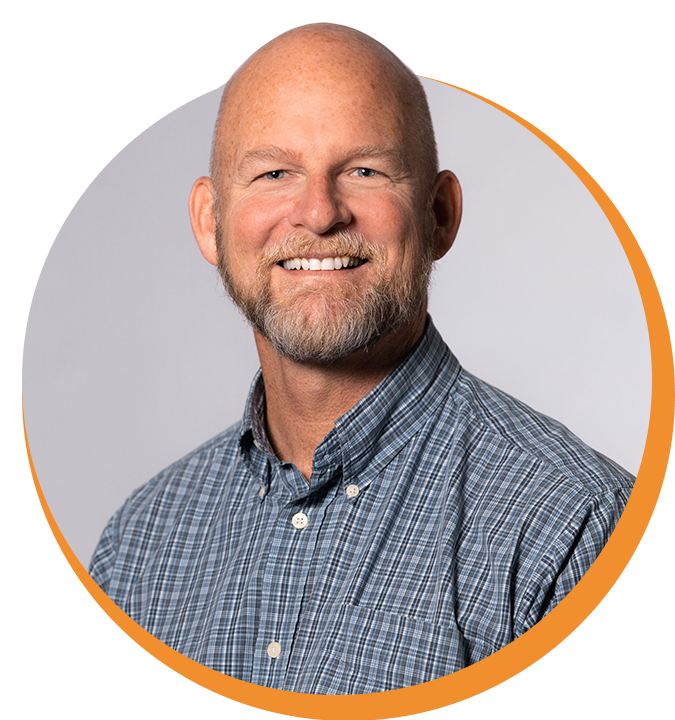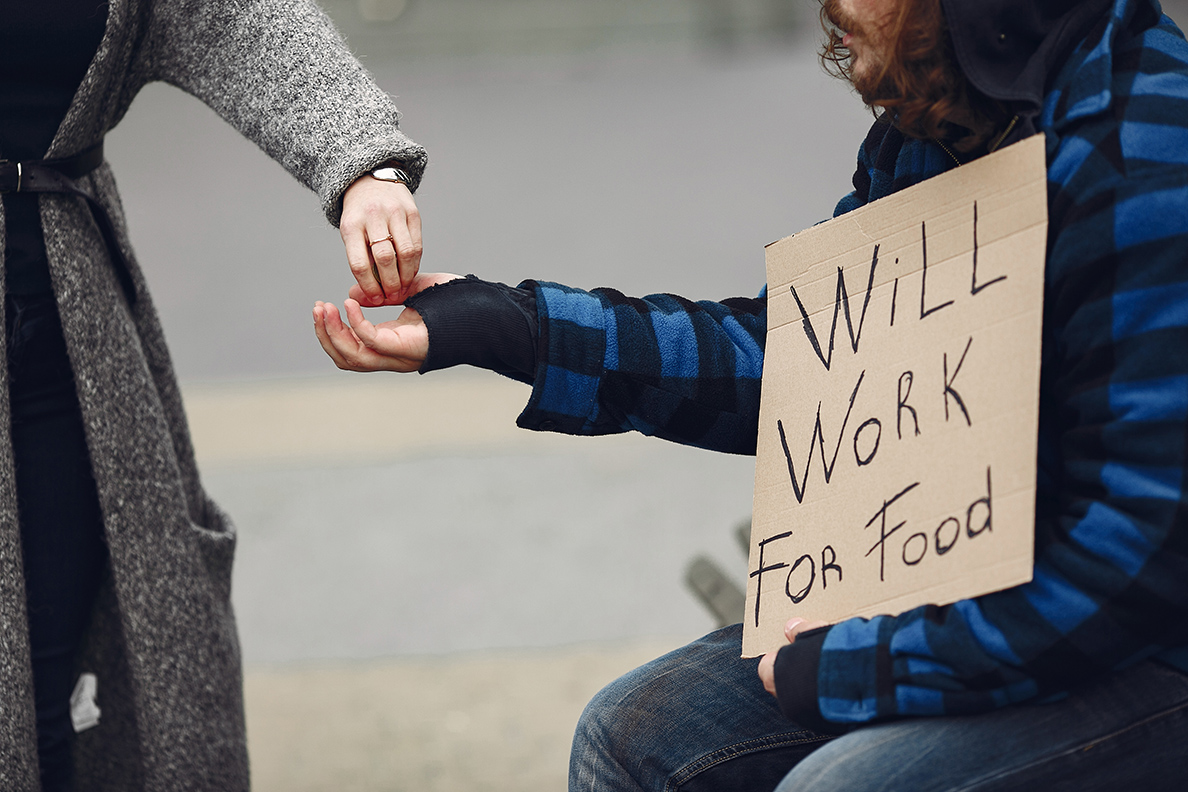When Your Donation Hurts More Than Helps

James Whitford
Executive Director
This article was originally published on JoplinGlobe.com on December 14, 2020.
The origin of the word “panhandler” is a mystery.
Some have suggested it was originally used as a reference to people who lived in the geographic panhandle of a state. Others suggest it derived from the Spanish “pan,” meaning bread, and still others simply tie it to the tin pan extended by a beggar on a sidewalk. One outdated dictionary defined panhandler by distinguishing the person as “able-bodied” in contrast to other beggars who aren’t.
More interesting is that panhandlers don’t use the term. They don’t “panhandle.” They “fly a sign.” This refers to a piece of cardboard or other simple material with a short message written on it, such as, “Anything helps,” or, “Will work for food,” to grab the attention of a passerby.
The fact that the giver and the recipient use different terminology is itself a sign that reads into the deeper cause of the problem: The ones who give to the need aren’t close enough to really understand it. If they did, they would do something more meaningful and less harmful than hand cash out a window.
Harmful?
Yes.
Consider these words of a man, Brett, who used to fly a sign on the streets of Joplin before he came into our ministry. From a recorded interview, “I’d go out there and do the ol’ flying the sign trick. I found that I can go out there and look really rough and fly a sign and get money off of people — that I could get me a little cash in my pocket. Through my addiction I was manipulating people — ‘will work for food’ — but my main thing was to get money in my pocket so I could get a drink. They didn’t know me from Adam and Eve. If they’d have just pulled over, sat down and talked with me, they would have known better why I was doing it. You’ve just got to get to know a person. Am I really helping him, or am I enabling him to stay in his addiction?”
Brett’s not alone. In a recent article on the subject published by Real Clear Policy, True Charity Initiative’s Nathan Mayo points out city surveys show about 90% of panhandlers are substance abusers. Furthermore, he reports that “panhandlers are only a fraction of the homeless and are predominately the chronically homeless,” whom the Substance Abuse and Mental Health Services Administration notes are more than twice as likely to be addicted to drugs or alcohol than non-chronically homeless people.
For most of us, we become acutely aware of our blessings at the holiday season. Consequently, we also become more aware of those who have less. That’s important. More important, though, is that once compassion is awakened, it’s stewarded beyond thoughtless charity based in shallow pity. God has given us compassion to do just what Brett suggested: pull over, sit down and talk, and know better. Then, we’ll learn a few things: It’s not called panhandling; there’s a person behind the sign made in the image of God who has a name; and most importantly, we’ll learn some way to really help without hurting.

This article is just the tip of the iceberg for the practical resources available through the True Charity Network. Check out all of the ways the network can help you learn, connect, and influence here.
Already a member? Access your resources in the member portal.



